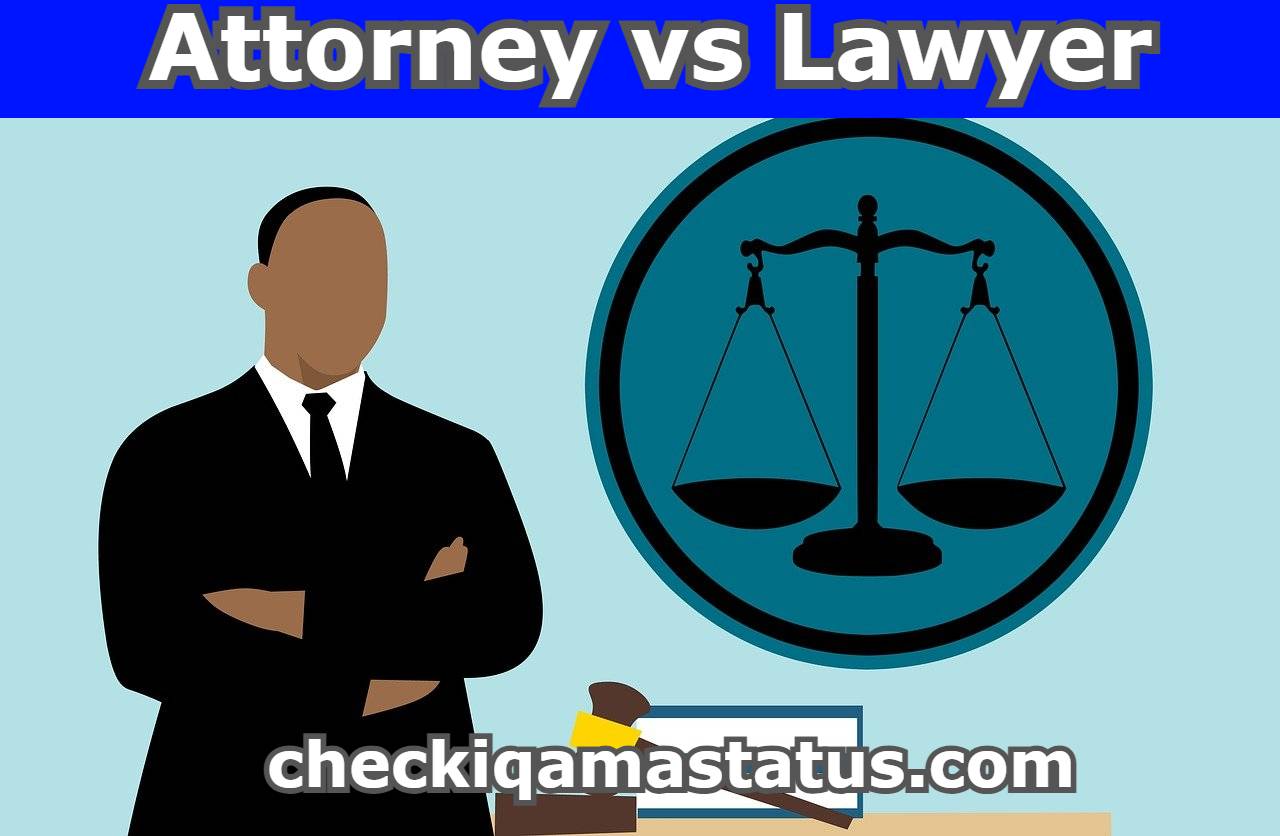Did you know that it is wrong from a technical standpoint to refer to a lawyer and an attorney as the same thing? Although these titles are occasionally used interchangeably in the legal profession, there are significant major differences in their tasks and obligations. The most obvious difference between the two is that whereas lawyers cannot practise law and represent clients, attorneys may. Attorneys may still be pending bar exam results.
In this post, we’ll clarify the differences between solicitors and lawyers, look at their different duties, and outline the requirements for each role.
is a lawyer different from an attorney?
The main distinction between a lawyer and an attorney is that a lawyer may not be licenced to practise law, while an attorney is authorised to practise law and represents clients in court. Not every lawyer is an attorney, but all lawyers are lawyers.
What is Considered an “Attorney”?
An attorney is a member of the legal profession who possesses:
- finished my legal studies
- cleared the bar exam
- gotten permission from a certain state or federal authority to practise law.
Attorneys are sometimes called “attorneys-at-law” and are authorised to:
- Give legal counsel
- In court, represent clients
- draft legal papers
Arrange agreements and settlements for clients
They possess the skills and experience required to defend clients in a range of court cases, including criminal defence and civil litigation. Lawyers have two options: they either operate alone as sole practitioners or join a team in a law office or business.
What is a “Lawyer” in California Law?
Everyone who has earned a Juris Doctor (J.D.) degree from law school is considered a lawyer, as the title refers to a larger category.
Not every lawyer is an attorney, even if all lawyers are lawyers.
Among the roles that certain solicitors may play are
- Consultants Of Law
- Researchers Of the Law
- Academics/Teachers
Without ever taking the bar exam, obtaining a licence to practise law, or appearing on behalf of clients in court, attorneys can nonetheless offer these services. Attorneys must get a state bar licence in order to actively represent clients in court and provide them with legal advice. They can face criminal prosecution if they provide unauthorised legal advice.
Attorneys have the option to pursue the Doctor of Jurisprudential Science (SJD) degree, which is the most advanced legal degree available.
Lawyer vs Attorney Educational Requirements and Licensing
A Juris Doctor (J.D.) degree is awarded to graduates of law schools, which normally take three years, regardless of the type of lawyer they are.
Law school covers a wide range of subjects, including
- Constitutional law
- Agreements under contracts
- Property laws and torts
- civil procedures
- Lawful arrangement
Students also gain knowledge in specialised legal areas such as taxes, intellectual property rights, and family law.
Bar Exam and Licensing
Aspiring lawyers must now pass the bar exam in the jurisdiction in which they plan to practise law after earning their J.D. For instance, a lawyer must pass the test for that particular jurisdiction in order to practise law in California. As a result, a Californian lawyer cannot actively represent a client in New York courts. To do so, the attorney would need to pass a different bar test in New York.
The bar test is a rigorous, multi-day evaluation designed to gauge an attorney’s proficiency in both state and federal regulations.
To be admitted to the bar and get a licence to practise law, a candidate must pass the bar test and then go through a background investigation or character review. These regulations differ depending on the jurisdiction, but they are usually implemented to ensure that solicitors in practice follow broad ethical and professional standards.
What is the Attorney-Client Privilege?
The Model Rules of Professional behaviour include stringent criteria for professional behaviour and ethics that apply to attorneys. State bar organisations and other regulatory organisations uphold the MRPC.
Several facets of an attorney’s profession are covered by these regulations, including:
- Attorney-client confidentiality
- Inherent conflicts of interest
- Ability Vigilance
- Legal expenses / Prosecution & Additional
- Attorneys are not subject to the same regulatory monitoring as lawyers who are not licenced to practise law. Although they are expected
- conduct themselves with the utmost professionalism, lawyer-client privileges do not apply to interactions between attorneys and clients.
The legal doctrine known as “attorney-client privilege” protects the confidentiality of conversations between a lawyer and their client. Not admissible as proof in a court of law.
Certain conversations are not protected by attorney-client privileges, including the following:
- Conversations intended to encourage criminal activity
- A business opposing its owners
- If the conversations concern a child’s welfare
Choosing the Right Legal Professional For Your Case
Selecting the best legal expert for your requirements is crucial when looking for legal counsel or representation. When choosing, keep the following things in mind:
- Licensing and Experience: Verify that the attorney you choose has the necessary experience in the area of law relevant to your case and is licenced to practise law in your jurisdiction.
- Communication and Rapport: Make sure you feel comfortable discussing your legal concerns with your legal expert by evaluating their communication style and building a solid working connection.
- Availability and Responsiveness: Make sure the attorney you select can promptly attend to your needs and has the time and resources to devote to your case.
- Reputation and Track Record: Search online for possible legal practitioners by reading through evaluations, testimonies, and any noteworthy successes or accomplishments of their company.
- Fees and Costs: Make sure you comprehend the attorney’s fee schedule and any associated costs for your case. Do they employ contingent workers? Are they hourly or something else?









